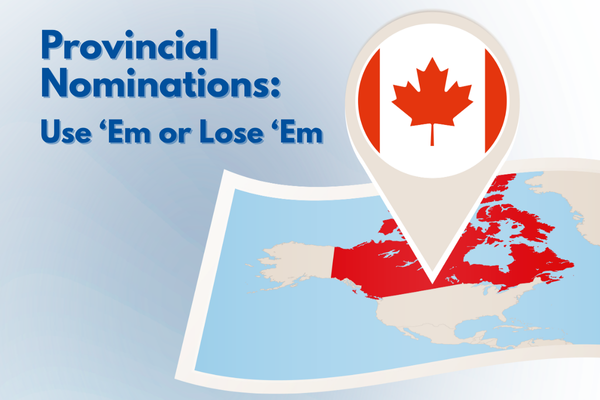If you're dreaming of moving to Canada, you're not alone. Many people around the world see Canada as a land of opportunity. One key step to making this dream a reality is getting a job offer from a Canadian employer. Here's why a job offer is so important for your Canadian journey.
Boost Your Immigration Chances
A job offer from a Canadian employer can greatly increase your chances of being accepted for immigration. Many Canadian immigration programs, like the Express Entry system, give extra points to applicants with job offers. This can help you get an Invitation to Apply (ITA) faster. In the Express Entry system, having a valid job offer can add up to 200 points to your Comprehensive Ranking System (CRS) score. This boost can make a significant difference in your ranking and speed up the immigration process.
Pathway to Permanent Residence
Some immigration programs require a job offer to apply for permanent residence. For example, the Provincial Nominee Programs (PNP) often need you to have a job offer in a specific province. Each province in Canada has its own PNP with different requirements, but most of them prioritize candidates with job offers. This means that your job offer can be your ticket to becoming a permanent resident of Canada. Having a job offer not only meets the criteria of many PNPs but also shows that you have a specific role waiting for you in Canada, which can make your application more compelling.
Financial Stability
Moving to a new country can be expensive. Having a job offer means you'll have a source of income when you arrive. This can help you settle in more comfortably and support your family. It also shows immigration officials that you can support yourself financially, which is a key requirement for many immigration programs. Financial stability is crucial when starting a new life in a different country. It ensures that you can cover your living expenses, find suitable housing, and provide for your family’s needs without financial stress.
Employer Support
When you have a job offer, your employer can often help with your immigration process. They may provide necessary documents, support your application, and even help you adjust to your new life in Canada. This support can make the immigration process smoother and less stressful. Many employers are familiar with the immigration process and can guide you through it, making sure you meet all the requirements and deadlines. Some employers even have dedicated HR teams to assist international hires with their transition to Canada.
Real-World Experience
A job offer gives you the chance to gain Canadian work experience. This is valuable not only for your immigration application but also for your career. Canadian work experience is highly regarded and can open doors to better job opportunities in the future. Working in Canada allows you to understand the local work culture, improve your English or French language skills, and build a professional network. These experiences can be beneficial if you decide to change jobs or seek advancement in your career.
Community and Network
Having a job in Canada means you'll start building a network of colleagues and friends. This can help you feel more connected and supported in your new country. It also helps you integrate into Canadian society more quickly. Being part of a workplace community provides social support and helps you learn more about Canadian customs and lifestyle. Your colleagues can offer valuable advice on living in Canada, and you might even make lifelong friends.
Steps to Getting a Job Offer
- Research: Look for Canadian companies that need workers in your field. Understand which industries are in demand and target those sectors. You can also check Immigrate's Job Board, for the best fit.
- Tailor Your Resume: Make sure your resume meets Canadian standards. Highlight your skills and experiences that match the job requirements.
- Apply Online: Use job boards like Indeed, LinkedIn, and the Canadian Job Bank. Create profiles on these platforms and set up job alerts for positions that match your skills.
- Network: Connect with people in your industry who might know of job openings. Attend industry events, join professional associations, and use social media to expand your network.
- Prepare for Interviews: Practice your interview skills to make a good impression. Understand the common questions asked in Canadian job interviews and prepare your answers accordingly.
A job offer is a crucial step in achieving your Canadian dream. It can improve your immigration chances, provide financial stability, and help you settle into your new life. Start your job search today and take the first step towards making Canada your new home. For more help with your immigration journey, visit
immigrate.biz. Our platform connects you with top immigration experts and provides the tools you need to succeed.

